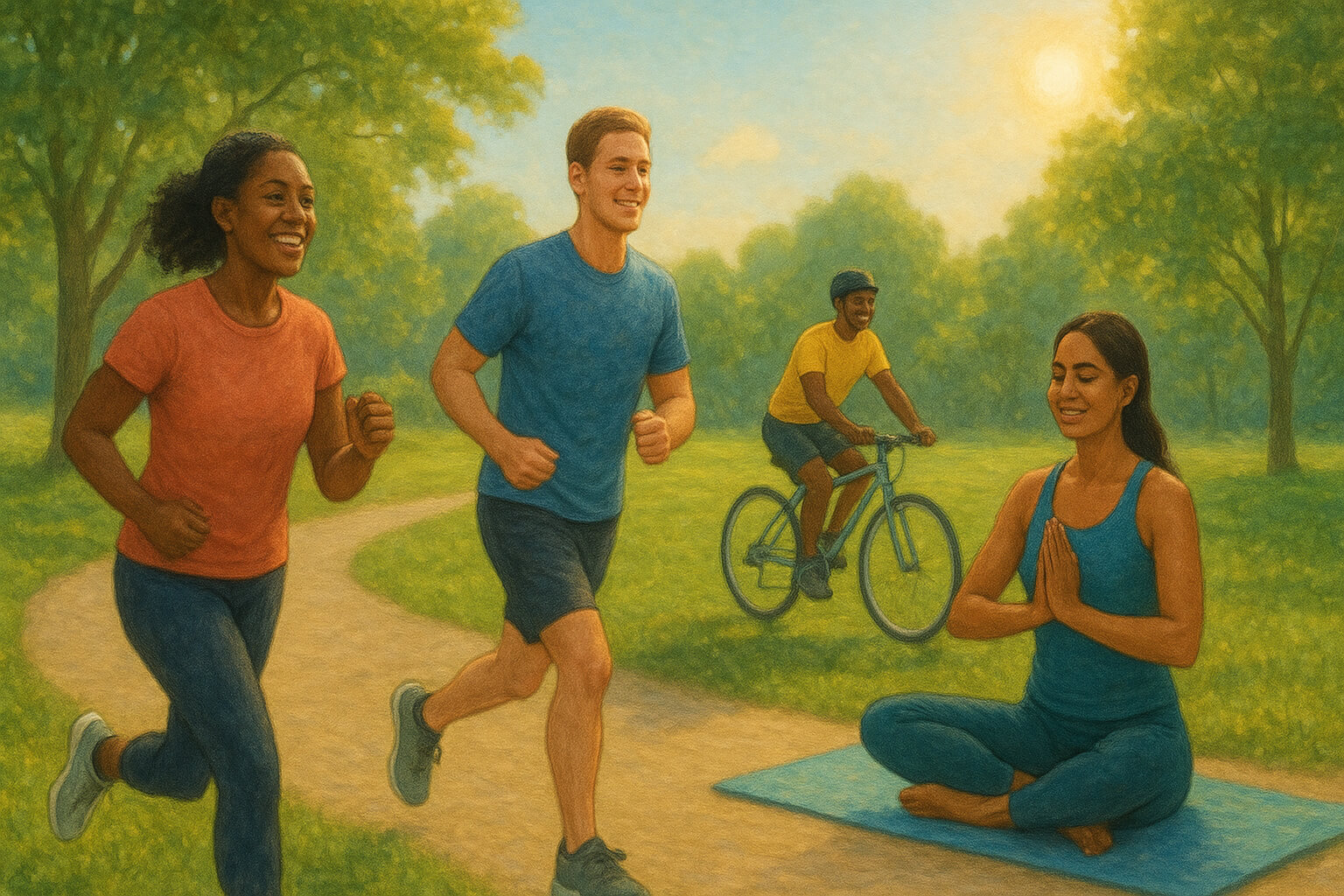August 26, 2025

When we think about exercise, we usually picture physical gains—like weight loss, muscle tone, or cardiovascular health. But beyond the body, regular physical activity has a transformative impact on the mind. In fact, mental health professionals often recommend exercise as a frontline intervention for improving mood, managing stress, and treating conditions like anxiety, depression, and even trauma-related disorders.
In an era when mental health is finally gaining the attention it deserves, integrating exercise into daily routines offers one of the most accessible, affordable, and effective tools for emotional and psychological well-being.
Exercise triggers a series of biochemical changes in the brain that positively affect mental health. These include:
These effects are not just theoretical. A 2023 meta-analysis in the British Journal of Sports Medicine found that exercise is 1.5 times more effective than antidepressants or therapy alone in reducing symptoms of depression and anxiety—especially when done consistently over time.
Source: Harvard Medical School – Exercise and Mood
Anxiety disorders can lead to racing thoughts, physical tension, and disrupted sleep. Exercise helps manage these symptoms by:
Even short, 10–15-minute walks have been shown to reduce anxiety levels, making movement a highly accessible strategy for anyone, regardless of fitness level or mobility.
For those dealing with depression, exercise is more than just a boost—it can be a lifesaving intervention.
For people who struggle with motivation (a common symptom of depression), starting small is key. Activities like gardening, walking a pet, or dancing to music at home can slowly help build momentum.
Remember: Even moderate movement 3–5 times a week has been shown to significantly reduce depressive symptoms.
Mental health isn’t just an internal journey—it’s also deeply influenced by our relationships and sense of belonging. Exercise can serve as a social anchor, helping people:
These community-centered wellness benefits echo the themes of social action and collective care discussed in other initiatives like RocketPages' article on How Food Banks Make a Difference in Communities, where shared activities build resilience.
You don’t need to train for a marathon to see benefits. The key is consistency, not intensity.
If motivation is an issue, consider pairing exercise with goal setting or journaling—this creates accountability and celebrates progress.
It’s also crucial to recognize that access to safe, supportive spaces for physical activity isn’t equal. Just as education advocacy groups work to remove barriers to opportunity (Breaking Down Barriers to Education for Girls Globally), mental health advocates are pushing for:
These efforts are especially impactful when paired with mental health awareness initiatives, such as those described in Advocating for Mental Health Awareness: Your Role.
Exercise isn’t just about getting fit—it’s about feeling better, thinking more clearly, and coping more effectively with the challenges of everyday life. Whether you're managing a mental health condition, recovering from burnout, or simply aiming to improve your mood, physical activity is one of the most powerful tools you can use—and it's available to nearly everyone.
When combined with social support, education, and policy change, regular movement becomes a force for both personal and collective healing.
Stay up to date with the latest tips, expert insights, product reviews, and step-by-step guides to help you grow, create, and succeed—no matter your industry or passion.